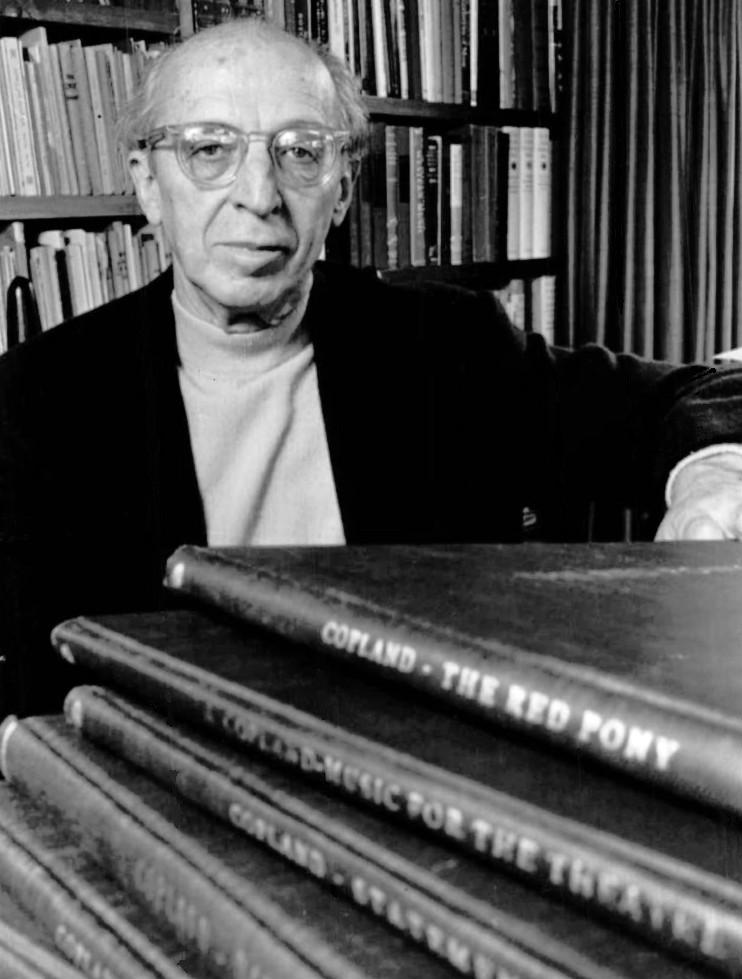When I speak of the gifted listener, I am thinking of the nonmusician primarily, of the listener who intends to retain his amateur status. It is the thought of just such a listener that excites the composer in me.

"Aaron Copland" was an American composer, composition teacher, writer, and later in his career a conductor of his own and other American music. Instrumental in forging a distinctly American style of composition, in his later years he was often referred to as "the Dean of American Composers" and is best known to the public for the works he wrote in the 1930s and 1940s in a deliberately accessible style often referred to as Populist and which the composer labeled his "vernacular" style. Works in this vein include the ballets Appalachian Spring, Billy the Kid (ballet)/Billy the Kid and Rodeo (Copland)/Rodeo, his Fanfare for the Common Man and Symphony No. 3 (Copland)/Third Symphony. The open, slowly changing harmonies of many of his works are archetypical of what many people consider to be the sound of American music, evoking the vast American landscape and pioneer spirit. In addition to his ballets and orchestral works, he produced music in many other genres including chamber music, vocal works, opera and film scores.
If you enjoy these quotes, be sure to check out other famous composers! More Aaron Copland on Wikipedia.Inspiration may be a form of super-consciousness, or perhaps of subconsciousness - I wouldn't know. But I am sure it is the antithesis of self-consciousness.
If a literary man puts together two words about music, one of them will be wrong.
To stop the flow of music would be like the stopping of time itself, incredible and inconceivable.
There is something about music that keeps its distance even at the moment that it engulfs us. It is at the same time outside and away from us and inside and part of us. In one sense it dwarfs us, and in another we master it. We are led on and on, and yet in some strange way we never lose control.
Listening to the Fifth Symphony of Ralph Vaughan Williams is like staring at a cow for forty-five minutes.
A melody is not merely something you can hum.
So long as the human spirit thrives on this planet, music in some living form will accompany and sustain it and give it expressive meaning.
Don't ever let him near a microphone.
The whole problem can be stated quite simply by asking, 'Is there a meaning to music?' My answer would be, 'Yes.' And 'Can you state in so many words what the meaning is?' My answer to that would be, 'No.'
Copyright © 2024 Electric Goat Media. All Rights Reserved.